Israel-Hamas war: What happened on day 144?
US hopes for Gaza ceasefire by Monday • Hamas: There are big gaps to be bridged before the next ceasefire deal
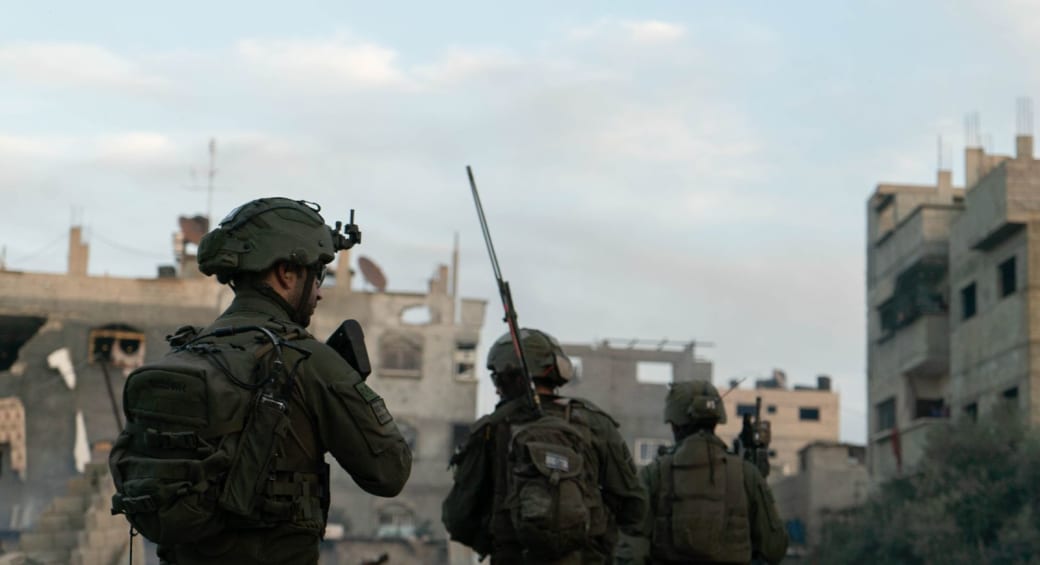

Hamas is keeping hostages in Rafah, IDF spokesperson stresses
When asked on the whereabouts of Hamas leader in Gaza Yahya Sinwar, Hagari simply responded: "We will get to him, dead or alive."
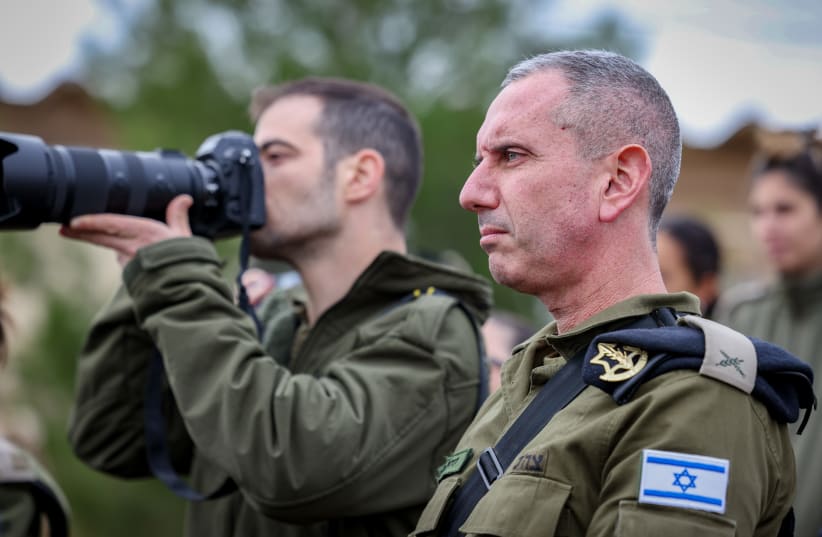
Some hostages are kept by Hamas in Rafah, IDF spokesperson R.-Adm. Daniel Hagari said in an interview given at the emergency conference on challenges facing Jewish communities held in Jerusalem.
"We are fighting Hamas from the north to the south," Hagari said. "We will finish in Rafah, it is an important city - there are hostages in Rafah," he was quoted by Israeli media as saying at the conference.
When asked on the whereabouts of Hamas leader in Gaza Yahya Sinwar, Hagari simply responded: "We will get to him, dead or alive."
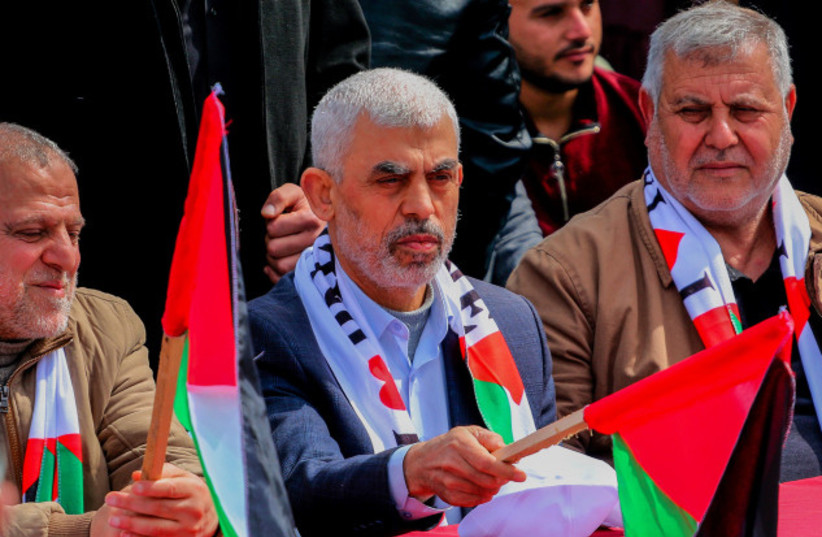
Hagari on antisemitism: Israel's war is not limited to the Gaza Strip
Hagari told the people in attendance at the World Zionist Organization (WZO) emergency conference, "I am here with you today because I receive new information, on a daily basis, of antisemitic incidents occurring across the globe.
"The challenge is huge, and we are dealing with it together - this war is not limited to the Gaza Strip," the Israeli military spokesman added. "This war is fought by the entire Jewish People - we are losing this war based on social media, we must improve.
"We need to continue battling in this arena for the truth so that the entire world knows."
Go to the full article >>Hezbollah rains 60 rockets down on Golan in retaliation for Israeli strikes
The IDF killed a Hezbollah commander around 100 kilometers into Lebanon.
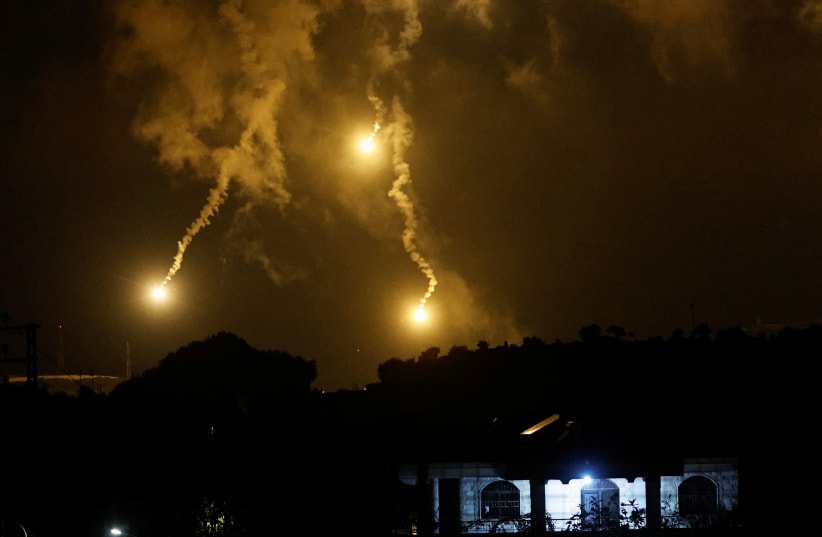
Hezbollah on Monday fired dozens of rockets toward the Golan in a significant departure from its general focus on the northern Galilee.
The Lebanese terrorist group said it was aiming for an IDF Golan base in retaliation for Israeli strikes near the city of Baalbek, which were themselves unusually deep strikes into Lebanon’s territory.
Baalbek is around 100 kilometers away from the Israeli border and is in Lebanon’s northeast, whereas most IDF attacks to date have been focused only on southern Lebanon, or on Beirut, which is still much further south than Baalbek.
No injuries reported
There were no reports of injuries from what Hezbollah said was a 60-rocket barrage.
The IDF did not say how many rockets were fired, but the Home Front Command only recorded 20 rocket sirens, appearing to ignore much of the Golan rocket fire as not dangerous during this round.
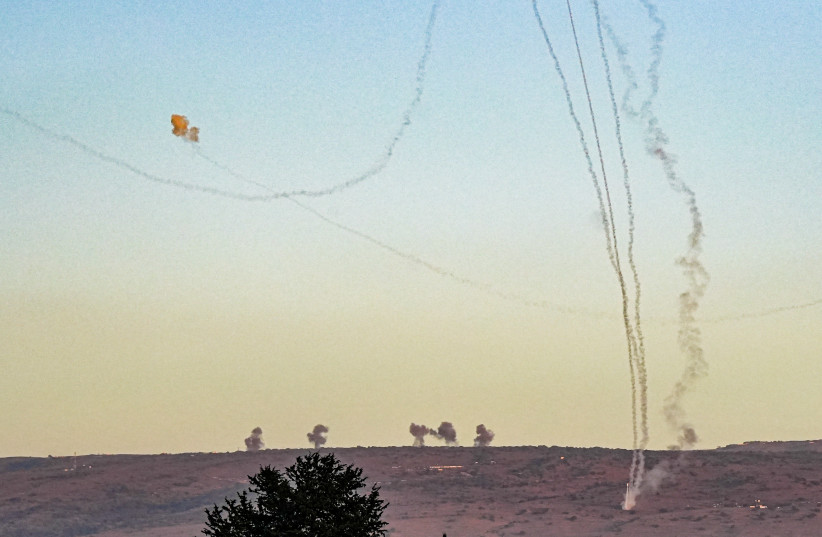
Occasionally, Iranian-affiliated militias from Syria have fired small numbers of rockets on the Golan, but nothing near Monday’s volume from Hezbollah; the Golan has mostly remained quiet recently.
Continuing the rounds of retaliation, the IDF later said it had killed senior Hezbollah official Hassan Hussein Salami in an airstrike on southern Lebanon.
Salami, whose rank is the equivalent to that of a brigade commander, was hit on the way to the southern Lebanon village of Majadel. This was one of the rare cases where the IDF intentionally took credit for the assassination.
According to the IDF, Salami commanded one of Hezbollah’s regional units, including managing attacks on IDF troops and Israeli communities in northern Israel, especially Kiryat Shmona.
Further, they said Salami was involved in directing the Hezbollah attack on an IDF base – Brigade 769.
The IDF appeared to take public credit due to Salami’s role in attacks on IDF bases, something the IDF has tolerated less than Hezbollah attacks on empty evacuated villages.
In contrast, the IDF usually does not take credit for assassinations in Lebanon, nor does it for most specific operations in Syria – though it admits to having attacked Iranian-affiliated targets in Syria thousands of times in recent years.
According to Reuters, at least two simultaneous strikes hit around Lebanon’s city of Baalbek, two security sources said.
An Israeli man was injured by a barrage of rockets fired at Moshav Shtula in the Galilee by Hezbollah on Monday.
Earlier on Monday, Hezbollah said it had shot down an Israeli Hermes 450 drone over Lebanese territory with a surface-to-air missile, the second time it has announced a downing of this type of unmanned aerial vehicle (UAV).
The Hermes 450 is a multi-payload drone made by Elbit Systems, an Israel-based weapons manufacturer.
The Israeli military stated earlier on Monday that two missile launches had targeted an Israeli Air Force UAV operating over Lebanon. The first, it said, was intercepted by Israel’s David’s Sling aerial defense system, but the drone “fell inside Lebanese territory” after the second missile attack.
“The David’s Sling aerial defense system intercepted a surface-to-air missile that was fired toward an Israeli Air Force UAV operating in Lebanon,” the IDF said in a statement. “Following the launch of the interceptor, sirens were sounded in the area of Alon Tavor in northern Israel.
No injuries were reported.
A short while after, an additional missile launch toward the UAV was identified and the UAV fell inside Lebanese territory.
The timing of the IDF’s decision to attack deeper into Lebanese territory seemed to come as a response to Hezbollah’s shooting down of the IDF drone.
Meanwhile, Defense Minister Yoav Gallant on Monday said that the evacuated northern residents will not return to their cities and homes before the hostages held by Hamas were returned.
In a meeting with hostage’ families, he reassured them that Israel was doing everything both militarily and diplomatically to bring back the around 100 living hostages, and the 30-plus bodies of hostages who were killed.
Although his formulation that northern residents would need to wait to return home until the hostages are released was in some ways not surprising. This was also a more explicit admission than usual that it will likely be months before the threat from Hezbollah is neutralized, even if a temporary ceasefire with Hamas is reached.
Hezbollah has said that it will cease attacking Israel the moment a ceasefire is reached with Hamas that would prevent Israel from launching new military activities within Gaza.
However, Gallant has consistently reiterated that the IDF will continue to attack Hezbollah until all of its forces were pushed back from the border with Israel all the way to an approximate point north of the Litani River.
Since even the current possible hostage deal describes an initial period of 45 days followed by another length of time spanning into months until a full hostage exchange is completed, this could easily take the continued evacuation of northern residents into the summer months.
Possibly not incidentally, on Sunday the government extended special rights for northern evacuees until July 7.
In the South, IDF Division 162, along with the Nahal Brigade and engineering forces, unearthed an underground tunnel network that connects the north and south of the Gaza Strip, the military announced on Monday.
The underground routes run for some 10 km. and pass under a hospital and a university.
After gaining operational control of the network, soldiers examined and destroyed large portions of it.
This was not the first such north-south extended Gaza tunnel, but its discovery and destruction is another sign of the gradual progress of the IDF in taking apart Hamas’s tunnel infrastructure.
Fully destroying that infrastructure is expected to take years.
Reuters contributed to this report.
Go to the full article >>Israel heads to wartime municipal election after months of postponement
11 local authorities in border areas of Gaza, North will vote in November
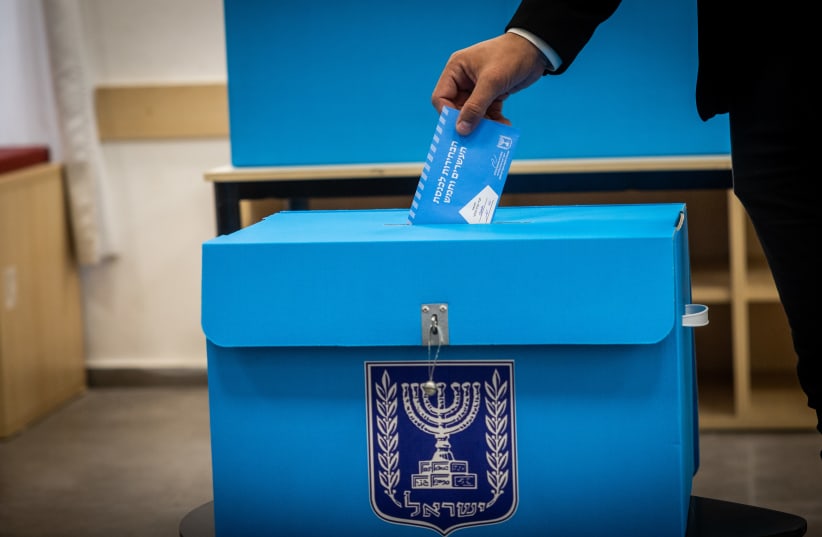
Residents in some 242 local authorities across Israel will head to polls today to choose their municipal leaders and councils, in an election that was scheduled for October 31 but postponed twice due to Israel’s ongoing war against Hamas in Gaza and conflict with Hezbollah on the northern border.
This is the third time in Israel’s history that municipal elections were delayed. In 1973, municipal elections that were scheduled for October 30 were postponed to December 31 due to the outbreak of the Yom Kippur War; and municipal elections scheduled for November 1982 were postponed to October 1983 due to the First Lebanon War.
Some 11 local authorities, five from the Gaza border area and six along the northern border, will only vote in November as their residents are spread out in hotels and temporary living arrangements across the country.
The unusually large number of IDF soldiers and reservists, including soldiers who are currently in the Gaza Strip, already began voting on February 20 to allow for their ballots to be collected and tallied on time. The final results will be published closer to the weekend.
The vote is open to residents who turned 17 before November 7, 2023. Voting locations can be found on the election’s online portal.
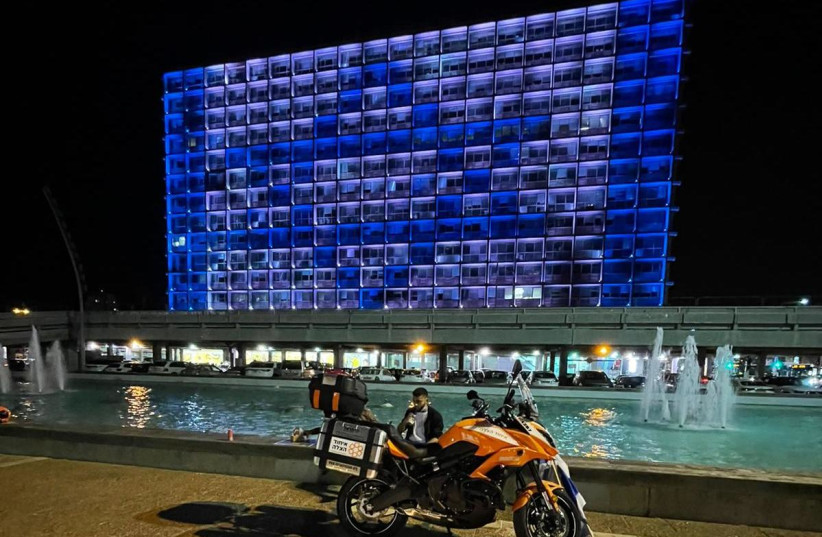
What will voters be able to expect heading into elections?
Voters will encounter two sets of ballots. Yellow ballots are for individual candidates for mayor or regional authority head, and white ballots are for parties that will make up the city or region’s council.
Mayors must win at least 40% of the vote to win. If no candidate reaches 40%, the top two finishers will face each other head-to-head in a second vote on March 10.
Gantz, Eisenkot present plan to include haredim, Arab-Israelis in military or national service
The presentation coincided with a hearing in the Supreme Court about the legality of the haredi exemption from IDF service.
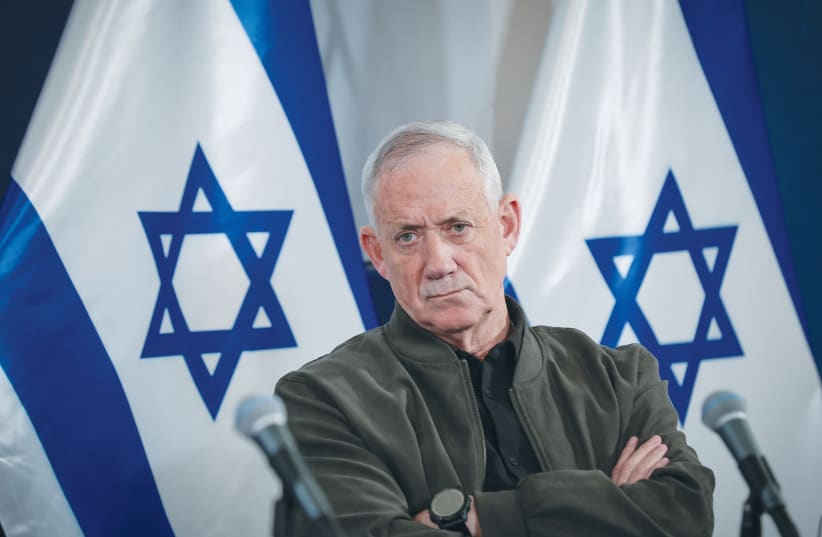
Minister-without-portfolio and National Unity chairman MK Benny Gantz presented in a press conference on Monday a plan to involve all Israelis in either national or military service, and end the blanket exemption to ultra-Orthodox (haredi) and Arab-Israeli citizens.
The plan, called the Israeli Service Plan, which Gantz presented alongside fellow Minister-without-portfolio Gadi Eisenkot and Inbar Harosh-Giti, former head of the Defense Ministry Service Directorate and number 18 on the party’s Knesset list, is nearly identical to a plan the three prosed in May. This time, however, the two said they would put forward the plan in the form of a bill proposal, at the same time that the government put forward two bills to lengthen mandatory service for recruits, and to nearly double the number of days reservists will have to serve every year.
The bills were published for public review earlier this month. Gantz’s and Eisenkot’s strategy is to demand that the government bills be defined as temporary, while the Israeli Service Plan will become the law in the long run.
A new system for IDF service
Gantz’s, Eisenkot’s, and Harosh-Giti’s idea was to create a new system whereby all citizens whom the IDF chooses not to draft will come under the responsibility of the Defense Ministry’s Service Directorate. The military would get the first pick out of Israel’s Jewish and male Druze citizens. Israeli-Arab citizens would not go through the IDF’s selection process, but instead would head directly to the Service Directorate, which would then assign them to services such as first aid and rescue, or volunteering in welfare or inner-community organizations.
“We cannot look into the eyes of the reservists and only vote on lengthening their service; this is not an issue for the court, but for leaders,” Gantz said at the press conference.
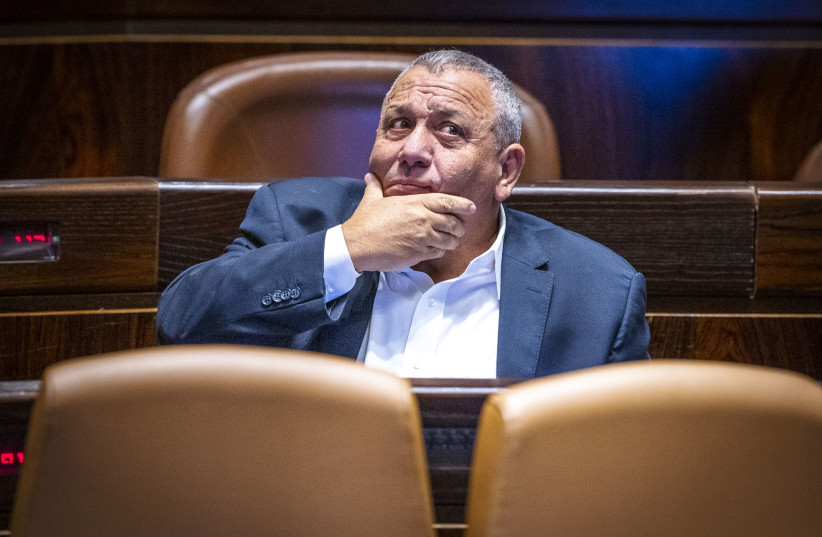
He stressed that in the wake of the Hamas invasion on October 7, members of all sectors of Israeli society, including Arab-Israelis and haredim, raced forward to save lives. This could be indicative of a system where everyone could serve without having to give up their identity and way of life, Gantz said.
Eisenkot added, “We can choose between a historic amendment and a historic missed opportunity.” He said that their plan was the basis for discussion and would be subject to changes if other parties in the Knesset had ideas of how to improve it.
In an answer to a question by The Jerusalem Post, Eisenkot said that the war cabinet had not debated the issue, and that part of the reason he and Gantz were holding the press conference was to bring the plan into the public eye to begin a process to enshrine it as law.
The press conference came amid a public debate about the justification for the decades-long blanket exemption from IDF service for haredi men, which broke out after the government’s bills to extend mandatory and reserve duties did not address the fact that haredi men were given a blanket exemption from service, and did not propose a plan to begin recruiting soldiers from a broader pool of candidates to lessen the burden on those who already are serving.
The press conference coincided with a hearing in the Supreme Court on the legality of the haredi exemption, as the bill that enabled it already expired at the end of June last year. It also coincided with a separate debate on a bill in the Knesset’s Foreign Affairs and Defense Committee (FADC) to lengthen the age of exemption for reservists by one year.
The bill is meant to preserve the current array of reservists at least until the end of 2024, as age barriers determine that if the exemption does not pass into law by February 29, thousands of men who have reached the age of 40 will be released from service.
According to Israel’s existing law, soldiers must serve in the reserves until the end of the calendar year in which they turn 40. That number is 45 for officers and 49 for specific roles deemed by the defense minister as especially necessary. On December 31, thousands of men were scheduled to become exempt from service. The Knesset on December 28 lengthened service for these reservists until the end of February and now wishes to lengthen it again until the end of 2024.
“The issue of extending service for mandatory and reserve soldiers cannot be separated from the question of haredi enlistment,” Yair Lapid, opposition leader and Yesh Atid chairman said during the committee’s debate.
“The first condition for joint living is that everyone has the same rights and the same duties. There is no such thing as unity without equality. There is no such thing as unity if all of the burden – operational and economic – falls on one group in the Israeli public,” Lapid said.
Even though the committee was only debating the one-year extension for reservists and not the government’s larger plan to increase mandatory and reserve duties, Lapid addressed the latter.
“There are 63,000 haredim who are at the age of service. If 10,000 of them enlist, there will be no need to extend mandatory service. If only a quarter of haredi men aged 20-49 serve in the reserves, then reserves can be limited to one month every year. This is not happening for one reason only: political pressure,” Lapid said.
The haredi parties in the coalition, especially the Ashkenazi-haredi party United Torah Judaism (UTJ) are adamantly opposed to IDF service – and are unlikely to support any law that requires this. The Sephardic-haredi party, Shas, has expressed openness for those who do not study in yeshivot to join the IDF – but opposes any attempt to recruit yeshiva students.
At least one member of the coalition, Likud MK Tally Gotliv, said during the FADC debate on Monday that she would not support a bill that would grant sweeping exemption to any group in Israeli society, including the haredim.
Members of the Likud and the coalition’s Religious Zionist Party have expressed similar sentiments, although most said that this cannot be reached without dialogue and the agreement of the haredi community.
Yisrael Beytenu Chairman MK Avigdor Liberman said in a press conference ahead of his party’s weekly meeting on Monday that every Israeli who reaches the age of 18 should either join the military or serve in civil service. Liberman claimed that many haredim wished to join the IDF, but that their political representatives were preventing this.
Go to the full article >>Israel-Hamas War: What you need to know
- Hamas launched a massive attack on October 7, with thousands of terrorists infiltrating from the Gaza border and taking some 240 hostages into Gaza
- Over 1,200 Israelis and foreign nationals were murdered, including over 350 in the Re'im music festival and hundreds of Israeli civilians across Gaza border communities
- 134 hostages remain in Gaza, 33 of which killed in captivity, IDF says